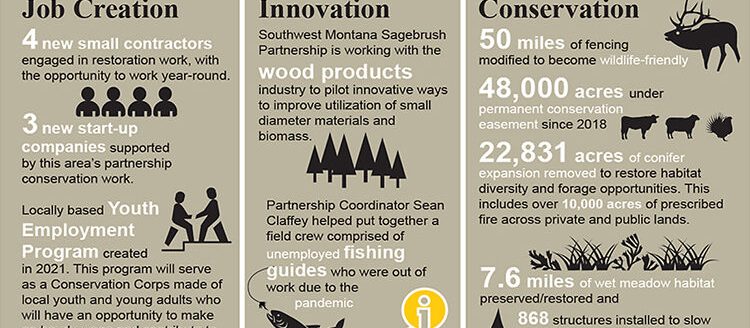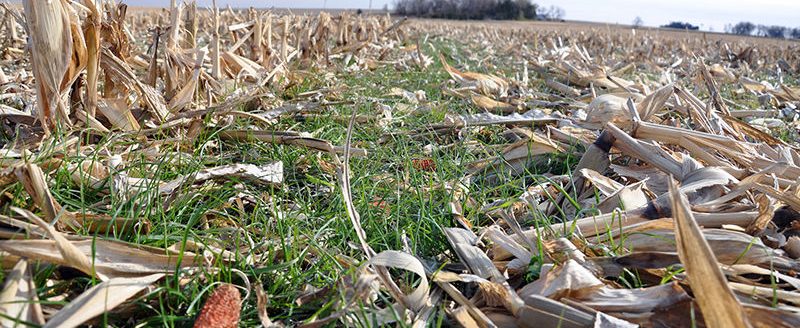Projects support climate-smart agriculture and soil health
The U.S. Department of Agriculture announced Nov. 8 it is awarding $25 million to conservation partners across the country for 18 new projects under the Conservation Innovation Grants On-Farm Conservation Innovation Trials program.
On-Farm Trials projects support widespread adoption and evaluation of innovative conservation approaches in partnership with agricultural producers. This year’s awarded projects increase the adoption of new approaches and technologies to help agricultural producers mitigate the effects of climate change, increase the resilience of their operations and boost soil health.
“Farmers, ranchers and forest landowners play a crucial role in charting the course towards a climate-smart future,” said Terry Cosby, Chief of USDA’s Natural Resources Conservation Service. “On-Farm Trials enable partners to work with producers to test and adopt new climate-smart systems on their operations that support agricultural production and conserve natural resources, while also building climate resilience.”
Projects in High Plains Journal’s coverage area include:
Regional LoRa Networks to Improve High Elevation Flood Irrigation Water Management (Colorado) Trout Unlimited will work within Colorado’s Gunnison River and Rio Grande basins, working with eight producers to deploy the use of Long-Range Low Power Area Networks (LoRa) to improve wild flood and furrow irrigation water management on irrigated mountain valleys above 5,500 feet elevation.
Reimagining Modern Crop Fields: Delivering Economic, Environmental, and Societal Benefits through Increased Adoption of Precision Conservation (Iowa, Minnesota) Pheasants Forever will explore a financial assistance model that promotes the adoption of precision agriculture and precision conservation strategies and tools on a farm-wide scale to identify opportunities for conservation and inform decision-making.
Bale Grazing: A Practical, Low-Cost, and Environmentally-Sound Management Strategy to Winter Beef Cattle (Kentucky, Missouri, North Carolina, New York, Virginia, West Virginia) The University of Kentucky Research Foundation will increase adoption of bale grazing to improve winter feed management for beef cattle farmers by demonstrating the practical, economic and ecological benefits of this strategy.
Grazing for Soil Health (Montana) Piikani Lodge Health Institute will work with Tribal Nations to support greater adoption and implementation of regenerative grazing practices on rangelands and irrigated pastures.
A Colorado Soil Health Program: Supporting Producers and Conservation Districts to Improve Drought Resilience and Water Utilization (Colorado) The Colorado Department of Agriculture will encourage the widespread adoption of soil health practices to achieve water quality, water conservation and on-farm economic benefits.
To see the complete list of projects, visit https://www.nrcs.usda.gov/wps/portal/nrcs/detail/national/newsroom/releases/?cid=NRCSEPRD1845232. For more details on the awarded projects, visit the NRCS website.
On-Farm Trials projects feature collaboration between NRCS and partners to implement on-the-ground conservation activities and then evaluate their impact. Incentive payments are provided to producers to offset the risk of implementing innovative approaches.
The Soil Health Demonstration Trial component of On-Farm Trials focuses exclusively on conservation practices implementation and systems that improve soil health.
Three of the four funding priorities support the wider adoption of climate-smart agricultural practices and systems: climate-smart agricultural solutions; irrigation management technologies; and the practices/systems to build soil carbon through the SHD.
A critical element of each On-Farm Trials project is the project evaluation. Partners must propose robust scientific approaches to their On-Farm Trials, resulting in data and analyses of the environmental, financial and (to the extent possible) social impacts of the trials.
Sixteen of the awarded projects outlined a plan to substantively include and benefit historically underserved producers.
NRCS intends to use the results of On-Farm Trials project evaluations and analyses to explore the development of new NRCS business practices, guidance documents, technical tools and conservation practice standards or modifications to existing ones.



